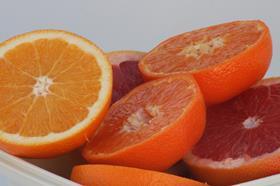
With the exception of soft citrus and citrus fruit grown in the Western and Northern Cape, South Africa has suspended all its citrus exports to the European Union for the rest of the year.
The decision was taken at a special meeting of the Citrus Growers’ Association (CGA) Citrus Black Spot (CBS) Disaster Management Committee. According to a statement from the Citrus Growers’ Association, the decision was a proactive one and taken as a measure to ensure continued access in future to the EU market.
The industry has requested that the Department of Agriculture implement this decision by suspending inspections and issues of phytosanitary certificates for all citrus exports to the EU, except for soft citrus and citrus exports from the CBS-free areas.
“The South African citrus industry, in partnership with the government, has worked tirelessly over the past six years to maintain South Africa’s comprehensive CBS risk management programme. Today's decision was taken as a measure to ensure continued access in future to the EU market, which is of significant importance to all industry stakeholders, not to mention the 100,000 people we employ.”
The industry has in the past suspended its exports to the EU, normally when there was a danger that reported interceptions for CBS would threaten the threshold allowed by the EU. In doing so the industry prevented action by the EU and would therefore be able to resume exports unhindered at the start of the season.
The whole issue of CBS continues to remain a thorny issue between South Africa and the EU. South Africa has disputed the EU stance that CBS could be transferred by fruit and therefore poses a risk to EU producers. The fact that CBS has never transferred within South Africa from the northern and eastern areas to the Western and Northern Cape, despite the free movement of citrus within South Africa, is often mentioned to counter the EU stance.
The South African industry has so far spent billions of Rand on measures to protect the integrity of its risk management system. The decision to suspend exports to the EU comes at a time when the season has just about finished. The latest indications are that the country will ship around 122.7m cartons, which is about 4m cartons more than the previous record export volume.



